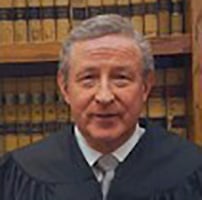Judicial independence and accountability in administrative law

Edwin Felter Jr.
The administrative law judiciary, both state and federal, has a greater need to demonstrate its judicial independence than the judicial branch because there have been long-held perceptions by segments of the public, that administrative law adjudicators—who are designated as “ALJs,” “hearing officers,” or “hearing examiners”—are too cozy with the agencies whose cases they hear.
(For a detailed treatment of the subject, please see “Judicial Independence and Accountability: The Right and the Wrong Kind,” by the author.)
Consequently, to establish appropriate perceptions of fairness and impartiality, the administrative law judiciary must satisfy the public that it is independent of the agencies. This added necessity is not readily appreciated by some members of the judicial branch because it is unthinkable for them to be perceived as too cozy with executive branch agencies, including prosecutors, when they hear cases involving the agencies.
The concept of judicial independence is not supportable without concurrent accountability. A U.S. district judge, who is a friend, once told me: “You ALJs are always touting ‘judicial independence’ so you can do whatever you want.”
My reply was: “You’re a federal judge with lifetime tenure telling me, an executive branch creature, that I tout ‘judicial independence’ so that I can do what I want.”
This was probably not the best rejoinder. With the benefit of hindsight, I should have argued that administrative law adjudicators are far more accountable, in more ways than one, than federal judges.
Indeed, the ABA Model Code of Judicial Conduct, in the “application” section, provides that the code applies to all full-time judges, and goes on to define “judges” as “anyone who is authorized to perform judicial functions, including … a member of the administrative law judiciary.” (Emphasis added.)
Rule 1.2 of the code, among other things, provides that “a judge shall act at all times in a manner that promotes public confidence in the independence [emphasis added], integrity, and impartiality of the judiciary.” Decisional independence is the cornerstone of a properly functioning judicial and quasi-judicial system. To quote the late former Chief Justice William Rehnquist, an independent judiciary is “the crown jewel of our system of government.”
In the author’s opinion, there are right kinds of accountability and wrong kinds of accountability (e.g., political accountability). The best form of accountability is adherence to the Code of Judicial Conduct (an all-encompassing performance code for judges). All codes of judicial conduct espouse the values of judicial independence, impartiality, integrity, diligence and competence, as evidenced by The Bangalore Principles of Judicial Conduct (2002), which was signed by the chief justices of 29 countries.
An important form of accountability (always for appellate judges and ALJs) is the requirement of “reasoned elaboration” (explaining legal reasons concerning how and why the outcome is what it is). The second form is “appeal.” An appellate tribunal is able to correct legal errors, “arbitrary and capricious” decisions, clear violations of statutory law, violations of due process, and erroneous findings of ultimate fact. An ALJ is under a compelling obligation to explain the reasoning underlying a decision because of the need to demonstrate decisional independence to the litigants, the public and reviewing tribunals.
For federal ALJs under the federal Administrative Procedure Act, there are no judgmental performance evaluations. Judgmental evaluations can affect pay, status, demotions and terminations. There is a rigorous selection process, so the trick is in hiring competent, ethical ALJs in the first place. At the state level, especially where ALJs are civil servants, there are mandatory judgmental performance evaluations under a state personnel system. In the author’s opinion, these performance evaluations should be synchronized with the code of judicial conduct. It is critically important to have true objective criteria, e.g., timeliness of decisions. There should be safeguards against activation of the “halo effect,” which is when bosses tend to reward those most like themselves.
Developmental evaluations are appropriate if not used in judgmental evaluations. These can take the form of nonmandatory peer review of decisions, anonymous surveys of practitioners and litigants, again if they are used for professional development and not in judgmental evaluations.
Improper forms of accountability are usually political in one form or another. Sometimes the foes of judicial independence argue that the voters should determine who their judges should be with the rationale that the judges should reflect the community where they serve. A recent television series comes to mind: Wisdom of the Crowd. The “crowd” envisioned by the author may be one of two crowds: (1) the lynch mob running after a suspect, chanting “let’s string him up;” or (2) the 19th-century villagers, with torches in hand, running after Dr. Frankenstein and his creation. An independent judiciary, including an administrative law judiciary, exists to replace these scenarios with fair, impartial and orderly due process.
Edwin L. Felter, Jr. is Senior Administrative Law Judge, Colorado Office of Administrative Courts (OAC) and he is an Adjunct Professor of Law at the University of Denver, Sturm College of Law, 2006–. He was director and chief judge of the OAC from 1983 – 1998. He was Chair of the National Conference of the Administrative Law Judiciary (NCALJ), American Bar Association (ABA), 2000/2001, and he was Chair of the Council of the Government and Public Sector Lawyers’ Division of the AB, 2012/2013. He was on the Standing Committee on Ethics and Professional Responsibility, 2006/2009.


